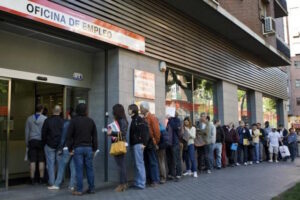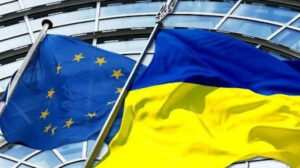
The Czech government is seeking support from other European Union countries for a new ammunition initiative after implementing a similar initiative in 2024, German N-TV reports.
“This is a matter of political will, and if many EU member states rejoin our initiative, we can achieve a lot for Ukraine,” Foreign Minister Jan Lipavsky said in an interview with the German news network (RND).
“We are currently looking at how we can finance the new ammunition initiative, and then we will see how many rounds of ammunition we can get for this money,” the Czech foreign minister added.
As reported, Defense Minister Jana Černohová announced the second project to purchase ammunition for Ukraine under the working title Initiative 2025 back in July last year. Deník N reported at the time that five companies would participate in the project: Czechoslovak Group, STV Group, Omnipol with Ompo Holding, Colt CZ Group SE, owned by Česká zbrojovka, and the DSS arms company.
Under the previous Czech ammunition initiative, Ukraine was provided with approximately half a million pieces of artillery ammunition. A total of 18 countries joined the initiative.

The number of commercial flights in the European Union in 2024 amounted to 6.7 million, which is 5.8% higher than the previous year, according to the EU Statistical Office. However, their number remained below the 7 million mark recorded in the pre-pandemic year of 2019.
Irregular flights, such as charters, accounted for 8.7% of the total number of flights. The peak was in the summer months: in June, their share was 10.3%, in July – 10.7%, and in August – 10.1%.
Amsterdam Schiphol Airport handled the largest number of flights last year (484 thousand). This is followed by Paris Charles de Gaulle (463 thousand) and Frankfurt am Main Airport (437 thousand). The top ten airports in terms of traffic also include Madrid, Barcelona, Munich, Rome, Athens, Vienna, and Dublin.
Eurostat’s definition of commercial air travel includes passenger, cargo, and mail flights.

Unemployment in the euro zone in December last year amounted to 6.3% compared to the all-time low of 6.2% a month earlier, the statistical office of the European Union said. Analysts had also expected 6.3%, according to Trading Economics. The November level, meanwhile, was revised up from 6.3%. By comparison, unemployment was 6.5% in December 2023.
The number of unemployed in the region rose by 96,000 in December from the previous month to a three-month high of 10.83 million.
The unemployment rate among young people (population under 25) fell to 14.8% from 14.9%.
The lowest unemployment rate among the largest eurozone countries was recorded in Germany (3.4%, the same as a month earlier), the highest – in Spain (10.6% vs. 10.7% in November). In France, unemployment in December increased by 0.1 percentage points and reached 7.8%, in Italy – increased by 0.3 p.p. to 6.2%.
In the European Union as a whole, unemployment stood at 5.9% last month, up from 5.8% in November. It stood at 6% in December 2023.
Earlier, the Experts Club think tank and Maxim Urakin released a video analysis on the state of the economy and debt in the world, see more on the YouTube channel:

The sugar market in Ukraine is stable, but with the opening of the European Union market in 2025, it opens up new prospects for Ukrainian producers, according to the analytical cooperative Pusk, created within the framework of the All-Ukrainian Agrarian Council.
The analysts reminded that since January 1, 2025, Ukrainian producers have gained access to the EU market thanks to new agreements on trade liberalization. This step has opened up the possibility for Ukraine to export large volumes of sugar to the European market without additional duties, which previously hindered the growth of supplies.
“The opening of the EU market is an important event for our industry. Currently, we are just starting to sign contracts for exports to Europe, but we expect a significant revival in this area in February-March. In January, we actively exported sugar to Turkey and African countries, but the European market is gradually becoming a priority,” the experts said.
According to them, the selling prices for sugar in Ukraine are 23-24.5 thousand UAH/t. This level is relatively stable, but seasonal factors and export expansion may lead to a gradual increase in prices in the near future.
“January-May is usually a period of seasonal growth in sugar prices. Probably, the current price level is one of the lowest, and the cost will continue to grow. The opening of the European market will also contribute to this dynamic,” experts predict.
In the coming months, the share of European supplies in the export structure will increase, which, in turn, will have a positive impact on the Ukrainian economy, Pusk summarized.

The EU will provide Ukraine with €35 billion in financial support in 2025, European Commission Vice President Valdis Dombrovskis said on Platform X on Wednesday evening.
“The EU is providing Ukraine with financial support through the G7 ERA credit initiative and the Ukraine Facility in the amount of €35 billion for 2025,” Dombrovskis wrote.

Spanish authorities are planning to introduce a 100% tax on real estate purchases for non-EU residents. This measure is part of a plan presented by Prime Minister Pedro Sanchez aimed at overcoming the housing crisis and ensuring the availability of housing for local residents, the Financial Times reports.
The head of government said that EU non-residents annually buy 27 thousand residential properties in Spain, mainly “for the purpose of speculation”.
Spain is one of the European countries where public discontent is growing due to difficulties in finding affordable housing for purchase or rent amid a sharp rise in real estate prices and a significant lag between new construction and demand.
Over the past 10 years, housing prices in Europe have jumped by 48%, which is about twice the growth in household income over the same period, Sanchez said.
Spanish real estate is in high demand among people who buy vacation homes or want to move to a country with a warmer climate.
Such purchases are already subject to a number of taxes, the amount of which depends on the region and whether the transaction is on the primary or secondary market. In total, these taxes range from 7% to 12%.
Other measures proposed by the government include the transfer of more than 3,300 houses and approximately 200 hectares of land to a new state-owned company for the construction of social housing, stricter regulation of seasonal rentals, the restoration of empty buildings, and the provision of incentives to homeowners who rent out their homes at affordable prices.